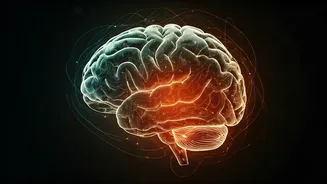Memory Recall Drills
One of the cornerstones of cognitive fitness involves enhancing memory. Memory recall drills, which can involve a variety of activities, are a great start.
Start by attempting to recall a list of items or details from a specific event, like trying to remember everything you did yesterday. Gradually increase the complexity, such as memorizing a list of words or recalling the plot of a movie after some time has passed. Regularly engaging in these drills strengthens the neural pathways associated with memory. This can improve your ability to retain and retrieve information, helping to counteract age-related memory decline. By challenging your brain in this way, you encourage it to form and reinforce critical connections, which will allow you to maintain cognitive flexibility and responsiveness as you get older.
Focus & Attention Games
Focus and attention are vital for cognitive health. Games designed to sharpen these skills are key to brain health. Simple games, such as puzzles, Sudoku, or even spot-the-difference, provide a great way to improve your focus. These activities encourage intense concentration and critical thinking. Playing these games strengthens the prefrontal cortex, which is responsible for executive functions, including attention and focus. The act of concentrating and systematically solving these games enhances your ability to filter out distractions and enhance cognitive stamina. Incorporating such games into your daily routine is an accessible and fun way to boost your attention skills. It helps keep your mind sharp and allows you to improve your performance.
Embrace New Skills
Learning new skills keeps the brain flexible and adaptable. Embracing fresh challenges, such as learning a new language, starting a musical instrument, or taking up a new hobby, is highly beneficial for cognitive health. These activities create new neural connections and strengthen existing ones. When you learn something new, your brain is forced to process different kinds of information, improving its versatility. This could include things like improving your vocabulary with a new language or mastering chords with a musical instrument. The more you challenge yourself with novel experiences, the better your cognitive agility will be. Learning new skills is a proactive way to counteract age-related cognitive decline, boosting your ability to learn, adapt, and stay sharp throughout life.
Brain-Training Programs
In recent times, specialized brain-training programs are gaining popularity as another effective tool to boost cognitive health. Numerous apps and online platforms provide tailored exercises designed to enhance different aspects of cognitive function, such as memory, processing speed, and problem-solving skills. These programs often incorporate a variety of challenges, ranging from puzzles to games, with the difficulty level adjusted based on your performance. Regularly using these programs can provide structured training for specific cognitive abilities. These types of programs can be particularly helpful for those looking for a consistent and measured approach to brain fitness. Such programs offer the benefit of monitoring progress, making them a great option for enhancing overall cognitive performance.
Mindfulness & Meditation
Practicing mindfulness and meditation offers a different yet equally crucial approach to improving brain health. These practices focus on cultivating present-moment awareness, reducing stress, and improving focus. Regular meditation can help reduce the levels of cortisol, the stress hormone, which negatively impacts cognitive function. Additionally, mindfulness enhances the brain's ability to maintain attention and regulate emotions. Just a few minutes of meditation daily can significantly improve cognitive health. It can enhance memory, boost focus, and increase the brain's resilience to age-related decline. Incorporating mindfulness into your routine provides a holistic approach to brain health, integrating mental well-being with cognitive performance.















